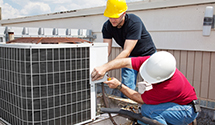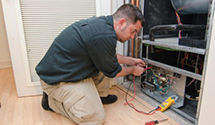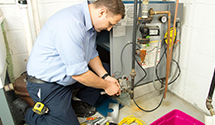24/7 Emergency HVAC Service in Beaver, UT
Need emergency HVAC service in Beaver, UT? Our specialist specialists are offered 24/7 to manage your heating and cooling emergencies. Call us at 888-406-7517 for immediate help.
When faced with an unforeseen HVAC emergency, homeowners need fast, reputable solutions that restore comfort and security to their homes. Whether it’s a sweltering summer season day with a broken a/c or a freezing winter night without heat, these scenarios require instant attention from professionals who understand the seriousness and can act swiftly. Our business specializes in providing emergency HVAC services, guaranteeing that your home stays comfy and safe no matter the time or season. Below, we’ll look into the typical HVAC emergency situations, preventive measures, and why choosing our service is the best decision for house owners in need.
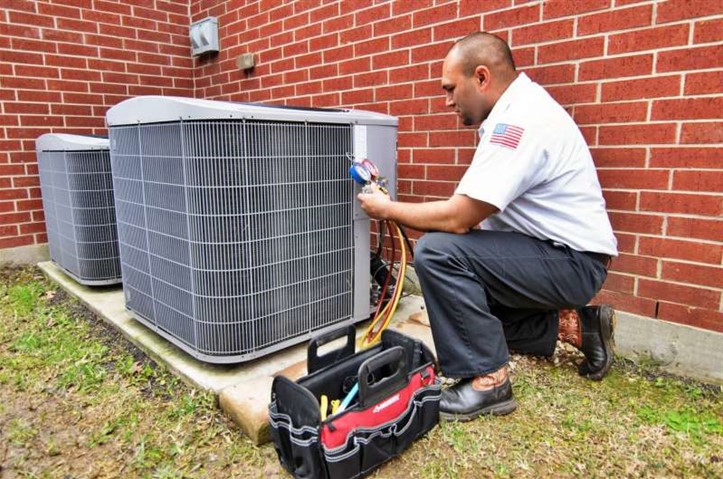
Comprehensive Emergency HVAC Services for Your Home in Beaver
Our group of skilled HVAC professionals is trained to manage a broad range of emergency circumstances. With comprehensive knowledge in both residential heating and cooling systems, we are geared up to identify and fix any problem that might develop. Here are a few of the most common emergency situations we respond to:
1. Furnace Failures
A heating system breakdown during the coldest months of the year is not only uncomfortable however can likewise posture serious health dangers, particularly for susceptible relative. Typical furnace problems consist of:
- Ignition or Pilot Light Problems: Without a working ignition system or pilot light, your heating system can not produce heat. This issue frequently stems from a dirty or faulty ignition part, which we can quickly fix or replace.
- Thermostat Malfunctions: If your furnace isn’t responding to the thermostat settings, the concern could be with the thermostat itself. Our specialists can recalibrate, repair, or replace defective thermostats to restore your heating.
- Blower Motor Failures: The blower motor is accountable for circulating warm air throughout your home. If it stops working, your heater won’t have the ability to disperse heat effectively. We can diagnose and fix motor concerns to get your system back on track.
- Gas Line Issues: A problem with your heating system‘s gas line is a major security concern. If you smell gas, it’s crucial to leave your home and call emergency services immediately. Our team can deal with the needed repairs to ensure your gas line is protected.
2. Cooling Breakdowns
A working a/c unit is vital during the hot summer season. When your AC system stops working, it can quickly turn your home into an excruciating environment. A few of the most common air conditioner emergencies consist of:
- Refrigerant Leaks: Refrigerant is essential for your AC to cool the air. A leakage not only decreases your system’s efficiency however can also trigger the compressor to get too hot. We can locate and repair leaks, along with charge your system with the correct quantity of refrigerant.
- Compressor Failures: The compressor is the heart of your air conditioner system, and when it fails, the entire system can shut down. Whether the problem is electrical or mechanical, our experts can identify and repair your compressor to restore cooling.
- Frozen Coils: When air flow is limited or refrigerant levels are low, the evaporator coils can freeze, resulting in a system shutdown. We can thaw the coils and attend to the underlying cause to prevent future problems.
- Electrical Issues: air conditioner systems rely on numerous electrical parts to work correctly. From blown fuses to faulty electrical wiring, electrical problems can cause your system to stop working. Our specialists are skilled in recognizing and fixing these problems quickly.
3. Heat Pump Issues
Heat pumps are a flexible option for both heating and cooling, making them an essential part in numerous homes. Nevertheless, they are not immune to problems. Common heat pump issues include:
- Reversing Valve Malfunctions: The reversing valve enables the heat pump to switch in between heating and cooling modes. If this element stops working, your heat pump may be stuck in one mode. We can repair or change the valve to restore proper performance.
- Defrost Cycle Problems: In winter, heat pumps require to defrost occasionally to prevent ice accumulation. If the defrost cycle isn’t working correctly, ice can collect and minimize performance. Our group can examine and fix defrost cycle concerns to ensure your heat pump runs smoothly.
- Airflow Problems: Restricted air flow can trigger your heat pump to work more difficult than needed, causing increased wear and tear. We can identify and remove clogs in your system to improve airflow and efficiency.
4. Ductwork Problems
Your home’s ductwork is accountable for distributing conditioned air throughout the house. Issues with your ducts can compromise the performance of your HVAC system and lead to uneven temperature levels or bad air quality. Common ductwork emergency situations include:
- Dripping Ducts: Over time, ducts can establish leakages that allow conditioned air to escape before it reaches its location. This not only decreases efficiency but can likewise increase energy bills. We can find and seal duct leakages to improve your system’s efficiency.
- Obstructed Ducts: Obstructions in your ductwork, such as debris or bug invasions, can restrict air flow and trigger your HVAC system to work more difficult. Our group can clear blockages and ensure your ducts are clean and free of blockages.
- Poor Insulation: Inadequately insulated ducts can lose a substantial amount of heating or cooling energy as air travels through them. We can evaluate your duct insulation and recommend improvements to boost your system’s performance.
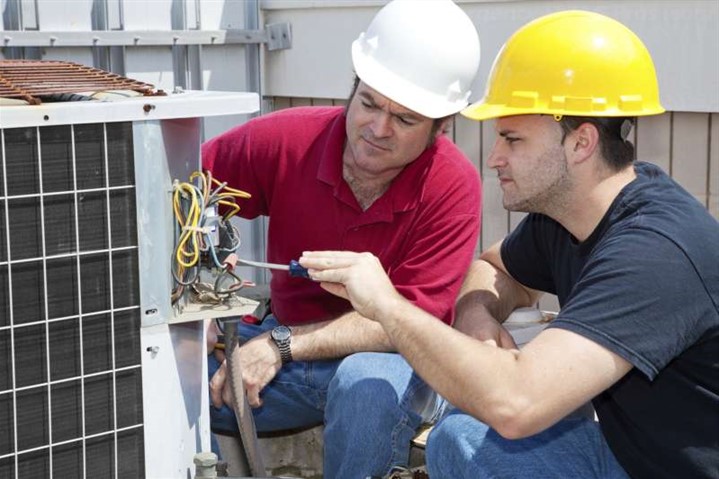
Proactive Steps to Prevent HVAC Emergencies in Beaver County
While it’s difficult to eliminate the threat of HVAC emergency situations entirely, there are proactive steps house owners can take to minimize the probability of a breakdown. Here are some essential pointers to keep your system running smoothly:
1. Arrange Regular Maintenance
Regular upkeep is the cornerstone of a dependable HVAC system. By scheduling routine inspections and tune-ups, you can capture potential problems before they become emergency situations. Throughout a upkeep check out, our professionals will:
- Check and clean crucial parts such as coils, burners, and blowers.
- Examine refrigerant levels and complement if needed.
- Check the thermostat and recalibrate it if needed.
- Lube moving parts to reduce wear and tear.
- Inspect electrical connections and tighten up any loose wires.
By staying on top of upkeep, you can extend the life expectancy of your HVAC system and lower the possibility of a sudden breakdown.
2. Replace Air Filters Regularly
Among the easiest yet most efficient methods to keep your HVAC system running effectively is by replacing the air filters routinely. A dirty filter can obstruct air flow, triggering your system to work harder and increasing the danger of a breakdown. Depending on your system and home environment, it’s recommended to change the filter every 1-3 months.
3. Display Your Energy Bills
A abrupt spike in your energy expenses can be a indication that your HVAC system is struggling. If you see an unusual increase in your month-to-month utility costs, it’s worth having your system examined by a expert. Early detection of problems can prevent more substantial problems down the line.
4. Keep the Area Around Your HVAC Units Clear
Guarantee that the areas around your indoor and outside HVAC units are devoid of debris, greenery, and other blockages. This enables appropriate airflow and decreases the threat of your system getting too hot. Furthermore, frequently cleaning the area around your systems can avoid bugs from nesting in your equipment.
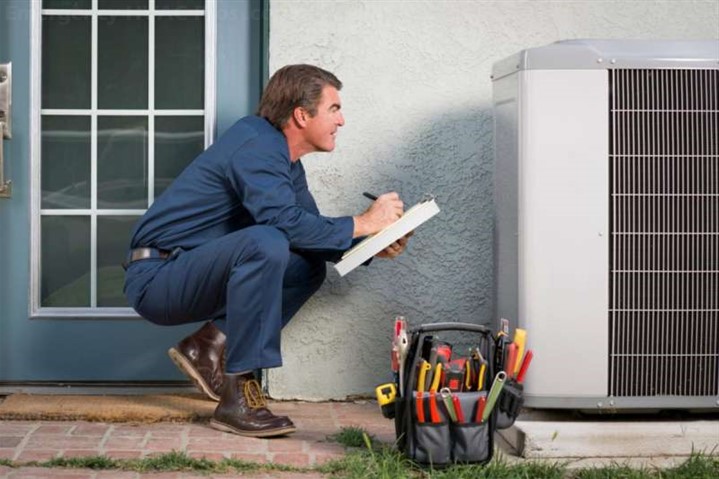
Why Choose Our Emergency HVAC Services?
When you’re handling an HVAC emergency, you need a group of HVAC Contractors in Utah that you can trust to supply prompt and trusted service. Here’s why homeowners pick us for their emergency HVAC requires:
1. 24/7 HVAC Contractor Availability
Heating and cooling emergency situations do not stick to a schedule, which is why our team is readily available 24/7 to respond to your call. Whether it’s the middle of the night, a weekend, or a vacation, we’re prepared to assist you whenever you need us.
2. Quick Response Times
In an emergency, every minute counts. Our technicians are strategically situated to ensure we can reach your home quickly and begin repair work as soon as possible. We understand the importance of restoring your home’s convenience and work effectively to lessen downtime.
3. Experienced and Highly Trained Technicians
Our team includes extremely trained HVAC technicians who have years of experience handling all types of emergency repairs. We remain updated with the current market standards and finest practices to supply you with the highest quality service.
4. Transparent Pricing
Our company believe in offering our customers with truthful, transparent pricing. Before we begin any work, we’ll provide you with a clear price quote of the costs included. There are no hidden charges or surprise charges– simply uncomplicated, dependable service you can rely on.
5. Top Quality Repairs and Parts
We utilize only the highest quality parts and equipment for our repair work, making sure that your HVAC system is restored to peak performance. Our repair work are built to last, providing you assurance that your system will continue to run efficiently long after we’ve completed the task.
When to Call for Emergency HVAC Service
It’s important to know when an HVAC concern requires instant attention. Here are some signs that it’s time to require emergency service:
- Total System Failure: If your heating or cooling system quits working completely, it’s time to call a expert. A total system failure is a clear sign that something is seriously incorrect and requires instant attention.
- Uncommon Noises: Loud, uncommon sounds such as banging, clanking, or shrieking can show a serious issue with your HVAC system. These noises often indicate a mechanical concern that needs to be attended to before it causes a total breakdown.
- Burning Smell: A burning odor originating from your HVAC system is a cause for concern. It might suggest an electrical issue, such as overheating wires or elements, which postures a fire risk. Shut off your system immediately and call for emergency service.
- Unexpected Temperature Fluctuations: If your home’s temperature level is varying hugely or your system is struggling to preserve a consistent temperature level, it’s a sign that your HVAC system is not functioning properly. An emergency examination can determine the problem and prevent more damage.
- Water Leaks: Water pooling around your HVAC system might suggest a refrigerant leak or a problem with the condensate drain. These issues can cause significant damage to your system and your home if not attended to promptly.
Contact Us for Reliable Emergency HVAC Service
HVAC emergencies require prompt action from knowledgeable experts. Our group is here to offer you with fast, dependable service whenever you require it. Do not let a heating or cooling emergency disrupt your life– reach out to us for immediate support. We’re readily available 24/7 to react to your call and restore convenience to your home.
Call us now at 888-406-7517 for quick, reliable emergency HVAC service. We’re here to help you get your system back up and running as rapidly as possible, so you can go back to delighting in a comfortable, safe home.
We can provide 24/7 Emergency HVAC Service for all areas in Beaver, UT including: Beaver County, , Cove Fort, Manderfield, North Creek, in Zip Codes 84713 and in Area Codes 435
We can provide HVAC Contractors for all areas in Beaver County including:



